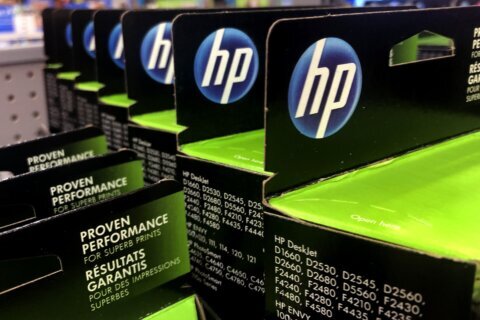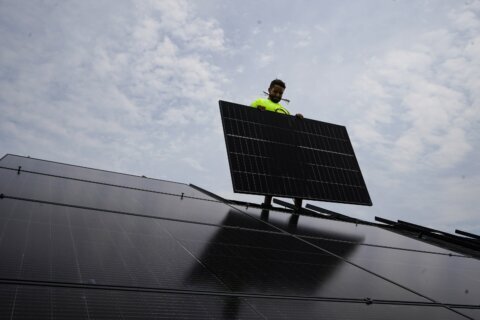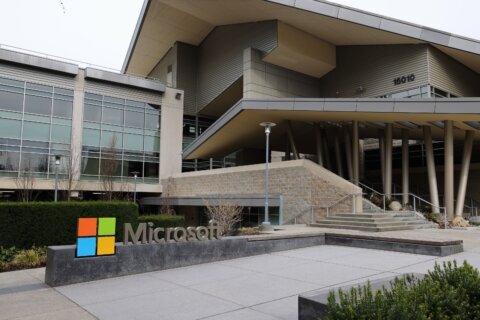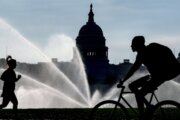New York (CNN) — Tech entrepreneur Dan O’Dowd, a fierce critic of Tesla, isn’t pumping the brakes on his campaign against the automaker’s self-driving software.
O’Dowd’s “The Dawn Project,” which says it wants to make software systems safer for humanity, is airing two ads during the Super Bowl calling on consumers to boycott the electric automaker’s products and stock after running a similar campaign during last year’s Super Bowl.
“Buying either puts money in (Tesla founder) Elon (Musk’s) pocket and funds his dangerous self-driving experiments,” a spokesperson for the Dawn Project told CNN on Sunday.
“Tesla has failed time and time again to address the failings in its defective self-driving software,” O’Dowd said Sunday in a statement. “When you buy a new Tesla you are financing and enabling Elon Musk to put a dangerous, unfinished, product on our public roads … We have tried to pressure Tesla and Elon Musk to do the right thing and take their defective software off our roads. However, it seems that the only thing that will pressure Tesla and Elon Musk to do the right thing is to deny them your money.”
Tesa has not responded to CNN’s request for comment.
Last year, the group produced one ad showing Tesla vehicles it implied were using the Full Self-Driving feature. In a series of video tests by The Dawn Project, the cars run over a child-sized dummy on a school crosswalk and a fake baby in a stroller.
“Two months after our ad aired, a child was hit by a while coming off a school bus,” O’Dowd told CNN in a phone interview. “It’s completely intolerable. Why would Tesla not turn off its self-driving features on roads that it knows are not safe on? This one thing will save lives and will cost Tesla absolutely nothing.”
O’Dowd is the president and CEO of the Santa Barbara, California-based software company Green Hills Software. In 2022, he launched a failed bid for the US Senate, running solely on the issue of Tesla’s automated driving software.
Tesla’s driver assistance features like Autopilot, Enhanced Autopilot, and Full Self-Driving are “designed to further reduce driver workload and make common actions, such as changing lanes or parking, easier,” according to Tesla owner manuals. But O’Dowd said The Dawn Project has “hundreds of hours of video” showing the features malfunctioning in various road conditions.
There is an entire section of the Tesla owner’s manual listing the limitations and warnings surrounding these programs. For example, the Autosteer function is “particularly unlikely to operate as intended” when driving on hills, on roads with sharp turns, in direct sunlight, or when shadows obstruct lane markings.
The company’s Full Self-Driving system is still officially in a developmental “beta” program. No Tesla vehicle on the market is able to drive itself and the company warns drivers none of their self-driving programs make their cars fully autonomous.
The Full Self-Driving feature will likely malfunction in instances requiring multilane turns, on windy roads, construction zones, and in “interactions with pedestrians, bicyclists, and other road users,” the owner’s manual cautions. “Always be prepared to take immediate action. Failure to follow these instructions could cause damage, serious injury or death.”
This year’s ads from The Dawn Project incorporate “real crash footage from victims of Tesla’s self-driving software,” the group said in the news release. The clips reportedly show two separate incidents involving Tesla cars with activated Autopilot features, according to The Dawn Project. In the first, a vehicle barrels into a semitrailer truck at an intersection. In the second, a vehicle flies past a stop sign and collides with a parked car.
“Tesla dances away from liability in Autopilot crashes by pointing to a note buried deep in the owner’s manual that says Autopilot is only safe on freeways,” the ad states.
The second ad alludes to an incident where “a self-driving Tesla blew past a stopped school bus,” injuring a child. “Still, Tesla does nothing,” the ad continues.
O’Dowd told CNN The Dawn’s Project’s Super Bowl ad last year invigorated the conversation around Tesla’s self-driving capabilities. The goal this year is to push consumer awareness to the point where they act with their wallets, he said.
“The default now is being worried and nervous,” O’Dowd said. “As opposed to two years ago, the reaction was: ‘This is the greatest new technology!’ But we’re not at the point yet to where people are saying that this product should not be on the road. We need to get people to understand that they’re buying a product that doesn’t work.”
This year’s campaign cost $552,000, a spokesperson for The Dawn Project told CNN, slightly lower than the group’s $598,000 ad buy last Super Bowl. The commercials will also be playing in fewer and smaller media markets. Last year, The Dawn Project aired its ads in Washington, DC, and the capitals of highly populated states: Atlanta; Austin, Texas; Tallahassee, Florida; Albany, New York; and Sacramento, California. This year, the ads will again be seen in Washington, DC, along with Dover, Delaware; Traverse City, Michigan; and Santa Barbara, California.
According to O’Dowd, The Dawn Project set aside a bigger budget this year, anticipating they would purchase ad space in Sacramento. However, CBS Sacramento refused to air their ads, saying “social cause/issue advocacy ads are not permitted,” according to The Dawn Project spokesperson.
CBS Sacramento has not responded to CNN’s request for comment.
“We are running it in fewer areas but have doubled the airtime with two commercials this year instead of one,” The Dawn Project spokesperson said, noting Washington “is the biggest focus as it’s the home of the politicians and federal regulators.”
O’Dowd said the Traverse City ad buy was chosen because Transportation Secretary Pete Buttigieg lives in the area, and Delaware was chosen because it is President Joe Biden’s home state. Biden owns a private residence in Wilmington, Delaware.
Tesla and Musk have long been the subject of federal scrutiny over the automaker’s Autopilot features. The National Highway Traffic Safety Administration and the National Transportation Safety Board have been investigating crashes involving Tesla vehicles using the various driver assist features, including a series of crashes into emergency vehicles on the scene of other accidents.
In December, Tesla recalled nearly all 2 million of its cars following a two-year probe by the NHTSA into roughly 1,000 crashes in which the Autopilot feature was engaged. The agency said the Autopilot system can give drivers a false sense of security and be easily misused in certain dangerous situations when Tesla’s technology may be unable to safely navigate the road. Tesla issued an over-the-air software update to limit the use of the Autopilot’s Autosteer feature if a driver repeatedly fails to demonstrate they are ready to resume control of the car while the feature is on.
CNN’s Ramishah Maruf and Chris Isidore contributed to this report.
The-CNN-Wire
™ & © 2024 Cable News Network, Inc., a Warner Bros. Discovery Company. All rights reserved.







